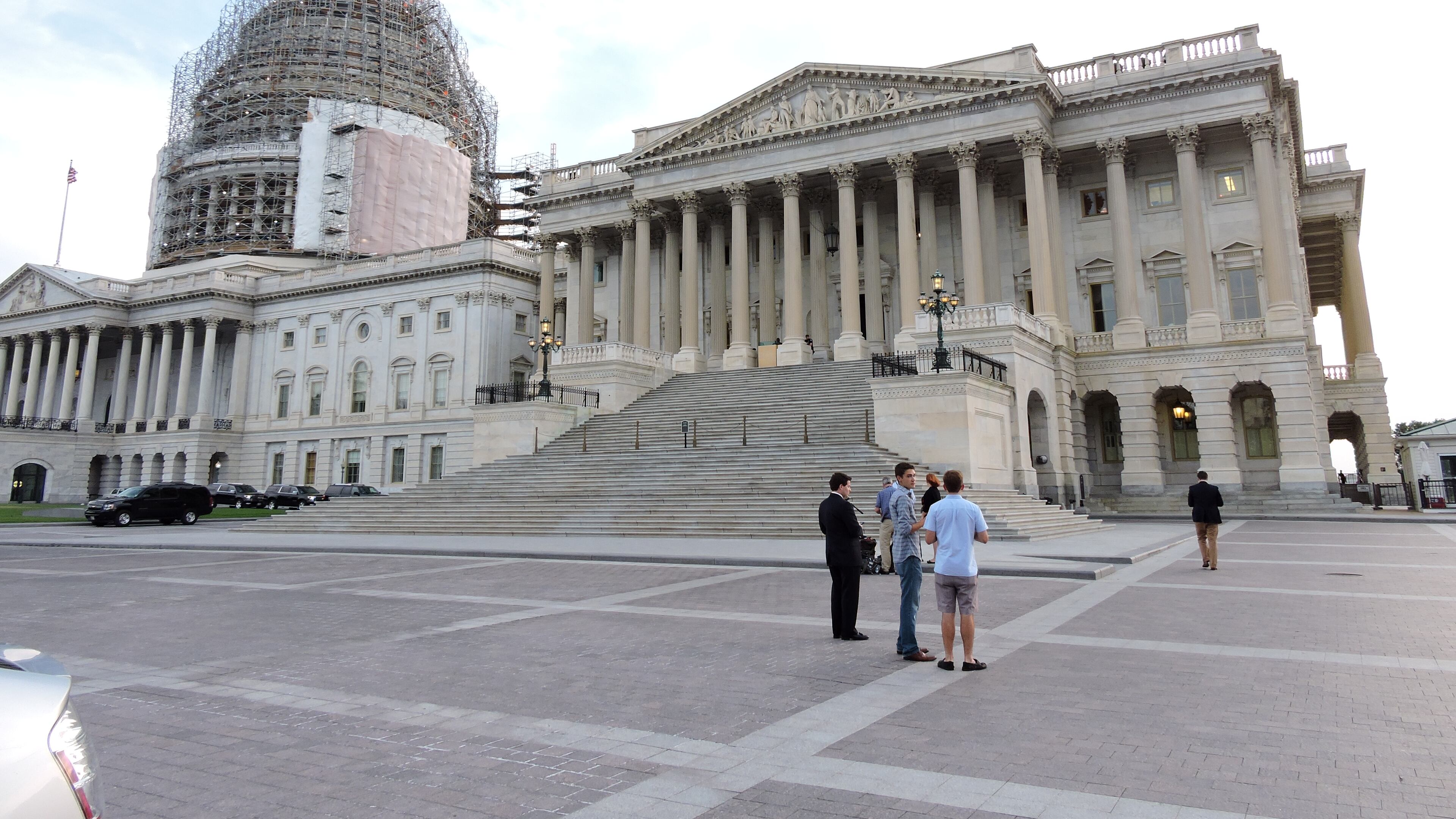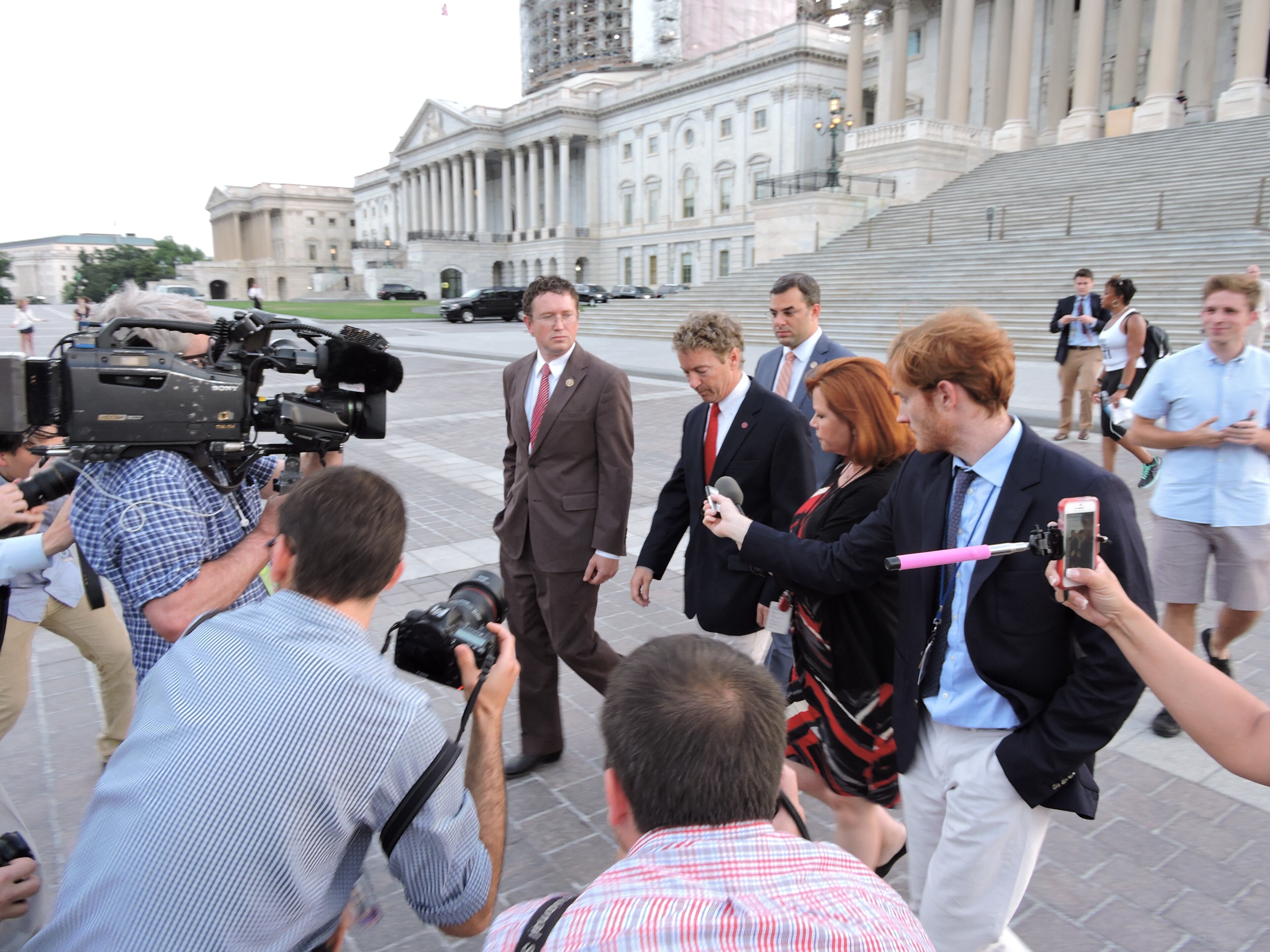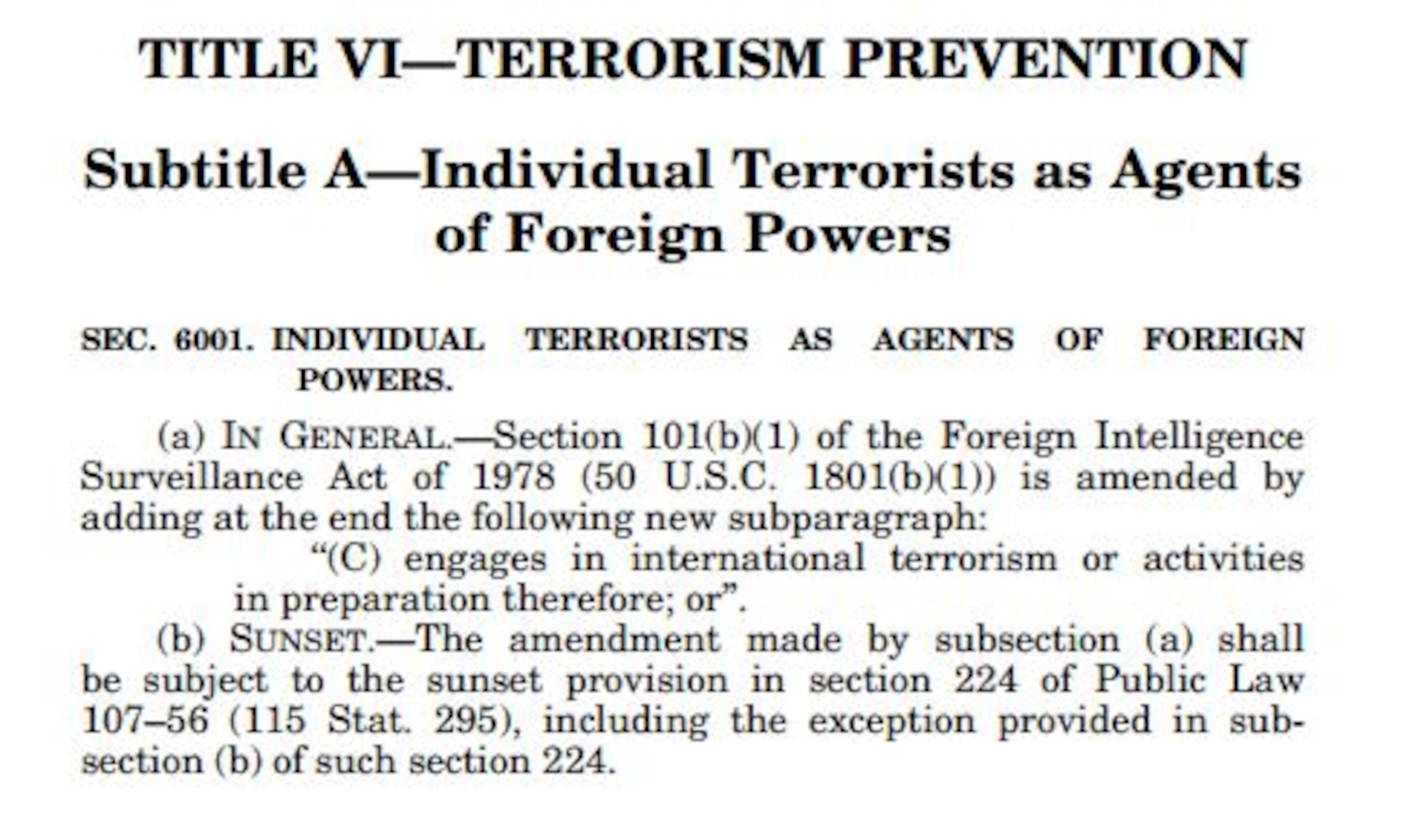Intelligence powers expire in Senate spat over NSA surveillance

Ignoring calls for action by President Obama and members of both parties in Congress, Sen. Rand Paul (R-KY) blocked action Sunday night on a bill to reform terrorism surveillance laws, as three anti-terrorism powers expired at midnight.
"I came here to defend the Bill of Rights and to defend the Constitution," Sen. Paul said on the Senate floor after tangling with fellow Republican Senators, as the candidate for President cheered the end of the government's ability to collect bulk telephone records.
"We're gathering up the records of innocent Americans," Paul said, as his campaign did all it could to broadcast his efforts.
But even as Paul left the Capitol on Sunday, he admitted his victory would only be temporary - as at some point this week the Senate will approve a series of intelligence surveillance reforms known as the USA Freedom Act - which the House easily approved in May.

The White House denounced the parliamentary snafu on surveillance, labeling it an "irresponsible lapse."
"On a matter as critical as our national security, individual Senators must put aside their partisan motivations and act swiftly," Press Secretary Josh Earnest said on Sunday evening.
Democrats in Congress were less charitable in their jabs at the GOP:

But the barbs weren't just from Democrats, as Republicans also turned their fire on each other; in this tweet, Sen. Paul and two of his House supporters took aim.
But other Republicans were also jabbing at Rand Paul as well - fellow candidate for President Sen. Marco Rubio said the expiration of the intelligence surveillance provisions was a "consequence of the reckless spreading of misinformation and political posturing."
I repeat: the entire Patriot Act is not expiring
One thing to note from this debate is that if you read anything which says the "Patriot Act is expiring" - that is not true.
Two provisions of the Patriot Act, along with one provision from a 2004 intelligence law expired at midnight:
+ §215 of the Patriot Act - this is the most controversial item involved in NSA surveillance, which the government used to collect bulk records.
+ §206 of the Patriot Act - this deals with roving wiretaps on terrorism suspects. For the most part, it is non-controversial.
+ A provision on surveillance dealing with "lone wolf" terrorists. Contrary to many news reports, this was not part of the original Patriot Act; it was a provision added to an intelligence surveillance law in 2004 (Section 6001 as seen below.)

So, for at least the next few days, the U.S. intelligence community and the FBI will not have the powers of those three provisions.
Two of them - roving wiretaps and lone wolf - will be easily renewed under whatever version of the USA Freedom Act is ultimately approved by the Congress.
As for Section 215, that would be modified by the House-passed USA Freedom Act, which backers say would set up "a new, narrowly tailored mechanism for the targeted collection of telephone metadata" in an effort to seek out terrorism clues involving foreign powers or agents.
Senate votes on these matters are not expected until at least Tuesday, leaving more time for finger pointing.
